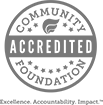Like so many of the Greatest Generation, Katherine Gruber Smith made a life for herself far from where she grew up. But at the end of that life, she returned a great blessing to the children of the region she originally called home, with a gift of $1 million to the Waterville Community Foundation (an affiliate of Greater Toledo Community Foundation).
Born and raised in Liberty Center, Katherine met her husband, Tom, during his World War II service in the Navy. After the war, they moved to Connecticut, where they both enjoyed lifelong careers in the corporate world. When Tom passed away in 2005, Katherine returned to northwest Ohio to be near family.
Waterville Community Foundation
The Waterville Community Foundation (WCF) was established in 2002 to support nonprofits in and around the Waterville area. With input from the WCF, the GTCF manages, invests and distributes assets from WCF funds. The City of Waterville was instrumental in establishing the WCF, and made the first contribution to a WCF fund.
Make a DonationShortly thereafter, her niece, Marilyn Simpson, introduced her to attorney Paul Croy to help manage her estate. Paul took an instant liking to the sharp, independent-minded 88-year-old. “When I first met her,” he recalled, “I thought to myself, ‘I hope I’m this together when I’m her age!’”
Paul noted that Katherine was very clear about her estate planning goals. “She wanted her assets to be used for charitable purposes in her home community. Not having lived here for most of her adult life, she didn’t know much about specific programs or agencies in the area – but she was very definite about what she wanted to accomplish.
“Katherine had no children of her own, but she loved children and was deeply concerned about young people in need,” he said. With Paul’s help, Katherine established four separate funds through her estate: two that aid abused and developmentally disabled children; one that supports youth-focused area nonprofits; and a scholarship fund for college-bound area high-schoolers.
“She’s not someone you’d tell what to do,” noted Paul. “She’d ask for ideas, and we’d weigh the pros and cons – but she’d make the decisions. She also liked that after her passing, decisions about how to use fund resources would be made locally.”
“She’s not someone you’d tell what to do. She’d ask for ideas, and we’d weigh the pros and cons – but she’d make the decisions. She also liked that after her passing, decisions about how to use fund resources would be made locally.”
- PAUL CROY
While many estate plans are structured with tax advantages in mind, charitable giving was Katherine’s sole focus in creating her plan. “People get so excited and enthused when they think of what their assets can do to benefit others,” said Croy. “Katherine took great pleasure in knowing the benefit she would provide young people in our community.”
Are you interested in how you can make a difference by giving back to your community? Call us at 419.241.5049 and we’ll show you just how easy it can be.
When Hussien and Randa Mansour Shousher first contacted the Toledo Community Foundation, it was to establish a donor advised fund. But before long, the relationship turned into one of collaboration and community engagement that extended well beyond what they had originally envisioned.
As children of immigrant parents, philanthropy was a practice that both of the Shoushers learned in youth. “People wore out the carpet coming to our parents’ homes and offices for help,” recalled Hussien. “The cultural obligation was family first, community next, not only with financial support, but contributions of time and talent were also expected.”
Hussien, as the CEO of GEM Industrial and board member of several area philanthropic organizations, knew well that much could be accomplished when this generosity of spirit was amplified by a community effort. So, nearly a decade ago, he and a number of other Arab-Americans came together to create the Center for Arab American Philanthropy (CAAP), a national philanthropic organization funded by Arab-Americans. “Our philosophy was that giving together has more impact,” he said. “We believed that if we started it, other people would jump on board — and they have.
“At first, what we were doing was raising money annually to support grants to various 501(c)(3) organizations that would apply to CAAP for grants,” he said. “But to grow nationally, we saw we needed an endowment — and we couldn’t develop that alone.”
An experienced advisor at CAAP recommended the organizers work through community foundations to fund their philanthropic efforts via donor advised funds, and introduced the Shoushers to TCF. But their fund was only the beginning.
“TCF was a game-changer for us,” said Hussien. “TCF knows what’s ‘on the ground,’ and has connected us with others who share our goals, and resources we didn’t even know existed. Their team also has helped us be a lot more strategic.” Some of those connections included other community foundations throughout the country. Since their first encounter with TCF, the Shoushers try to include meetings with community foundation leadership in other cities when they travel. “Different communities have different needs, and different approaches to meeting those needs,” said Randa. “We learn something new from every visit.
“TCF was a game-changer for us. TCF knows what’s ‘on the ground,’ and has connected us with others who share our goals, and resources we didn’t even know existed. Their team also has helped us be a lot more strategic.”
- HUSSIEN SHOUSHER
“Today, donors don’t want to just write checks. They want to see impact, and to make a difference in people’s lives,” she added. “We don’t always know how to demonstrate the value of what we are doing. Through the Foundation, we’ve learned what donors need to see to inspire them to give.”
The Shoushers are applying principles they learned in collaboration with TCF and others to their work with various other charities, including HearCare Connection, a nonprofit in which Randa devotes her services as an audiologist to needy hard-of-hearing individuals, both in northwest Ohio and overseas. “We’ve gone overseas five times now to provide hearing care for refugee children,” said Randa. “With each trip, our work has grown. We had 13 audiologists and 14 volunteers on our last trip, nine of whom were from Toledo. “Kids that have hearing aids can then go to school,” Randa said. “The ultimate goal is to enable them to get an education and training so that they can make a business for themselves and have a future beyond the refugee camps.”
Here in northwest Ohio, HearCare Connection serves children and adults alike. “HearCare Connection was actually started by a student that Randa mentored,” Hussien explained, “and has grown over the past five years to include a number of local HearCare Connection groups across the country. Each of these local organizations must find ways to raise their own funds, and community foundations have been an important resource for them. To date, we have also received great financial support from local businesses and individuals.
“One of our goals is to reduce the distinctions between ‘us’ and ‘them,’ and more toward ‘we,’ said Hussien. “Our efforts are funded by Arab-Americans, but our grants do not require ethnic ties to the Arab-American community. We’re ethnic in funding, but diverse in who gets the money — because when the wider community benefits, we benefit, too.”
Meet Mary Mennel
Not many people find their life’s calling by the time they’re nine years old — but Mary Mennel was one of the lucky ones. “I’ve been involved with YMCA Storer Camps from the third grade on, starting with Camp Storer” she said. “First it was as a camper, then as a counselor. After college, I went back, and eventually was made the Summer Director for 6th and 7th graders and Director of Outdoor Education.”
But after 17 years and a management change at Storer, Mary decided it was time for a new direction. One night, she got a call from her parents with news that Mrs. Virginia Stranahan was “looking for someone to run what she was doing with her estate — so I had a parental directive to call her.”
Join the Legacy Society
For information about current or deferred giving, or to join our Legacy Society, please contact one of our Philanthropic Services Officers at 419.241.5049.
Contact UsAfter her first three-hour interview in the garden of Mrs. Stranahan’s Perrysburg home, Mary returned a second time with her resume. On interview number three, as Mary was thinking, “how can I get out of this?”, Mrs. Stranahan announced that she’d like Mary to be the executive director of The 577 Foundation, which Mrs. Stranahan was creating from her family estate.
Mrs. Stranahan, a victory-garden-era person who grew her own organic vegetables, had community gardens as her top priority, and their first project was to establish an indoor observation beehive. Next came pottery, inspired by Virginia’s experience hiring a professional potter to teach her own children. Today, community gardens, pottery programs, classes and events are the ongoing focus at 577, which now has five full-time staff and numerous seasonal and part-time employees.
Mrs. Stranahan provided for 577 through a field of interest fund with Toledo Community Foundation, the Secor Fund. “Each year, 577 applies for a grant to fund its activities — so TCF becomes a ‘second eye’ on our operations,” observed Mary, who is now in her 26th year as its executive director. “And Virginia was adamant that The 577 not depend on the community for funds, so her goal was for her endowed fund to provide for its operation.”
When Mary recently decided to establish a TCF Legacy Fund, it just made sense to continue what she’d been doing all her life — so her own future fund supports these two favorite causes. “The YMCA and 577 Foundation were my only two jobs, and they’re who I am today,” she said. “Staying with jobs like these for as long as I have, I can see the impact these organizations have in people’s lives. So it’s natural that I would want to continue this work into the future.”
Meet Eleanor S. Longbrake
In an era when a woman’s place was very different from what it is today, she was a pioneer.”
So observed Bill Longbrake, whose aunt, Eleanor S. Longbrake, broke new ground in many quiet ways throughout her 97 years.
Born in 1913, Eleanor had a keen interest in nature and science from a very early age. She was an exceptional student, and earned scientific degrees from the College of Wooster and The Ohio State University at a time when fewer than ten percent of Americans graduated from college.
Eleanor began teaching science at Toledo’s Scott High School in 1939. But just three years later, after the U.S. entered World War II, she joined the war effort by enlisting in the WAVES. As a naval officer, Eleanor became one of the 6000 weather forecasters trained for the war effort — only 150 of whom were women.
“Aunt Eleanor was very generous, and had a deep sense of duty, as well as a love for science and education. She’d take me on ‘field trips’ to explore nature when I was a kid, and helped pay for my college education. Even when she wasn’t in the classroom, she was always teaching.”
BILL LONGBRAKE
When Eleanor returned to the classroom, she became Scott’s first College Advisor, helping hundreds of Scott students pursue higher education years before area schools had guidance counselors. In 1960, Eleanor left Scott to supervise science programs throughout the Toledo Public Schools for the next 17 years. She remained active in retirement, teaching Sunday school and volunteering.
With her Toledo Community Foundation legacy fund, Eleanor’s dedication to area youth and their education continues. In the years since her passing in 2010, the Eleanor Longbrake Fund has supported summer science and college readiness programs, her two great passions as a teacher more than 60 years ago.
“Aunt Eleanor was very generous, and had a deep sense of duty,” said Bill of his aunt’s philanthropy, “as well as a love for science and education. She’d take me on ‘field trips’ to explore nature when I was a kid, and helped pay for my college education. Even when she wasn’t in the classroom, she was always teaching.”
Meet Darcy Wagner, Ph.D.
A lifestyle of giving began early for Darcy Wagner, Ph.D. “Giving was a way of life for our family. When we were little, the three of us kids would fight over who got to put the envelope in the church basket,” she said, “so it goes way back.”
Darcy’s father, who was the principal of St. John’s Jesuit High School, also had creative ways of instilling in his children the value of sharing and service to others. “Dad began a tradition called the Christmas Envelope. Each of us kids got an envelope with money in it, and we had to give it away. We could give it to whomever we wanted — but we had to give Dad the envelope back with the record of where the money went. When the envelopes were read at Christmas, it was a very cool moment.”
When it came time to choose a college, Darcy knew she wanted to be at a school that furthered those Jesuit values, so she chose Gonzaga University. “It was also a culture where all the people around me were giving in some way, and it was really important to me to be a part of that culture,” she said.
Darcy’s commitment to funding a lifestyle of giving began early, too. At age 25, Darcy became one of the youngest people in the 40-year history of the Foundation to establish a Donor Advised Fund.
Now a postdoctoral researcher in Munich, Germany, Darcy is serving others through her career in lung transplantation research — and one of the very first grants she made from her fund was to supply her high school alma mater, Notre Dame Academy, with scientific equipment.
“I grew up in Toledo, and I want Toledo to succeed — even if I’m somewhere else in the world, I want to see my community grow.”
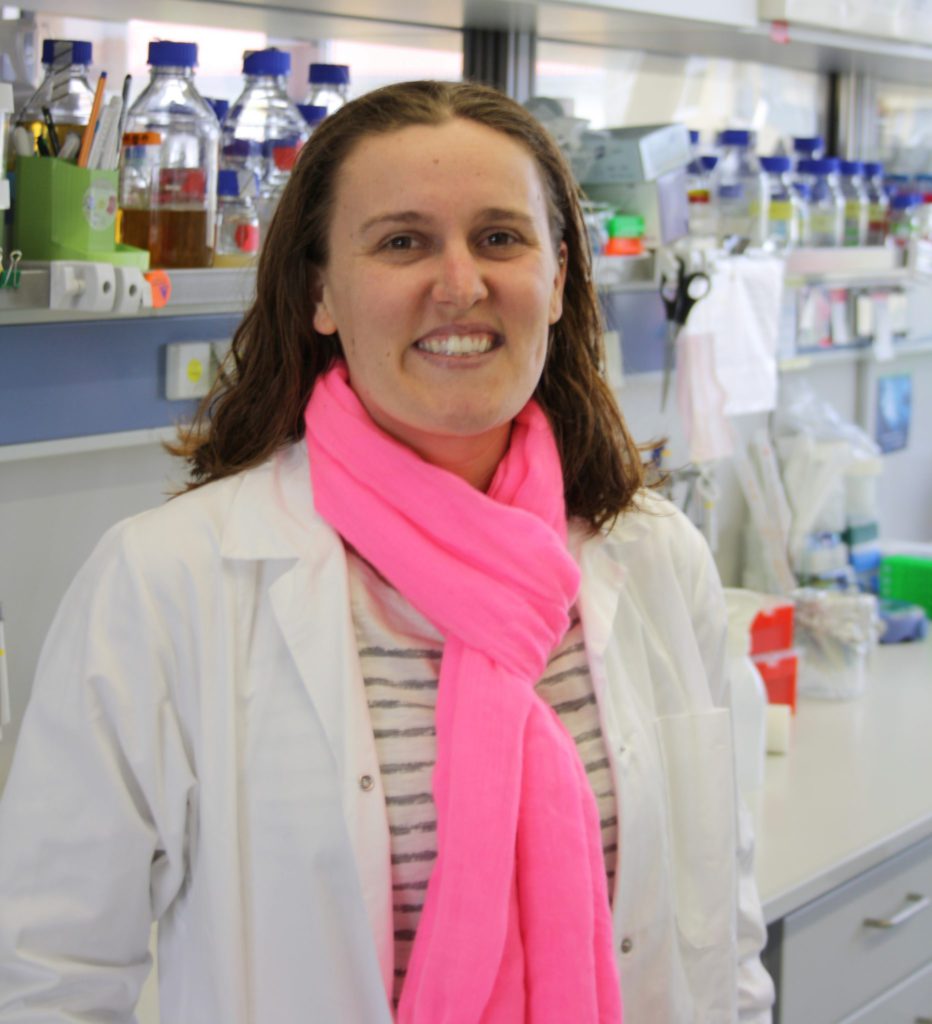
Describing her purpose for establishing a charitable fund at the outset of her career, Darcy said, “I knew giving was something I wanted to do with my whole life — not just the end of my life. I might not be able to give as much right away, but over the course of my lifetime, I’ll be able to give so much more than I would have without it. And when I pass away, my family or descendants can continue what I started.”
At age 25, Darcy became one of the youngest people in the 40-year history of the Foundation to establish a Donor Advised Fund.
Ken and Jean Lovejoy
Giving — and having solid information on which to base it — matters to Ken and Jean Lovejoy.
“We’re both data-driven people,” said Jean, describing their approach to philanthropy. Both graduates of The University of Toledo, Ken went into engineering and Jean into pharmacy — “so it goes with our training.”
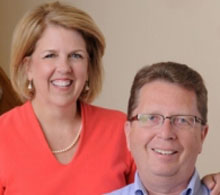
Not surprisingly, then, their annual charitable giving decisions used to be stressful. “We’d look at a folder full of appeals and try to decide which ones to support. We were giving under time pressure, in a very scattered way.”
Things changed when the Lovejoys established their donor advised fund with the Toledo Community Foundation in 2011. “Before, our donations were a mile wide and an inch deep,” said Ken. “Now, we evaluate our annual plan and submit a single donation to the Toledo Community Foundation, then assess where the funds should go over the next several months.”
“It’s more enjoyable to give this way — and we can use the Foundation’s website,” said Jean. “The Foundation vets each organization listed, and the facts they provide are invaluable.”
In 2012, Ken and Jean again turned to the Foundation to establish a Legacy Fund. A portion of the fund will ultimately go to the UT Colleges of Engineering and Pharmacy, with the balance to other area organizations.
“Education has done much for us, and helping others to benefit from an education is a priority,” said Ken. “We recognize that estate planning objectives and priorities can change, so the flexibility of a Legacy Fund is very attractive. If our other charitable goals shift over time, we can make changes without altering our will.”
“When we started our first fund, we considered other options,” said Jean, “thinking a Toledo-based foundation might be limited, or that they could only fund local entities. We were delighted to find otherwise — their service is truly outstanding.”
Kiriyanthan & Thresiamma Jacob
Nearly 50 years ago, Kiriyanthan Jacob graduated with an engineering degree from the University of Michigan and left for his homeland, India, to find a bride.
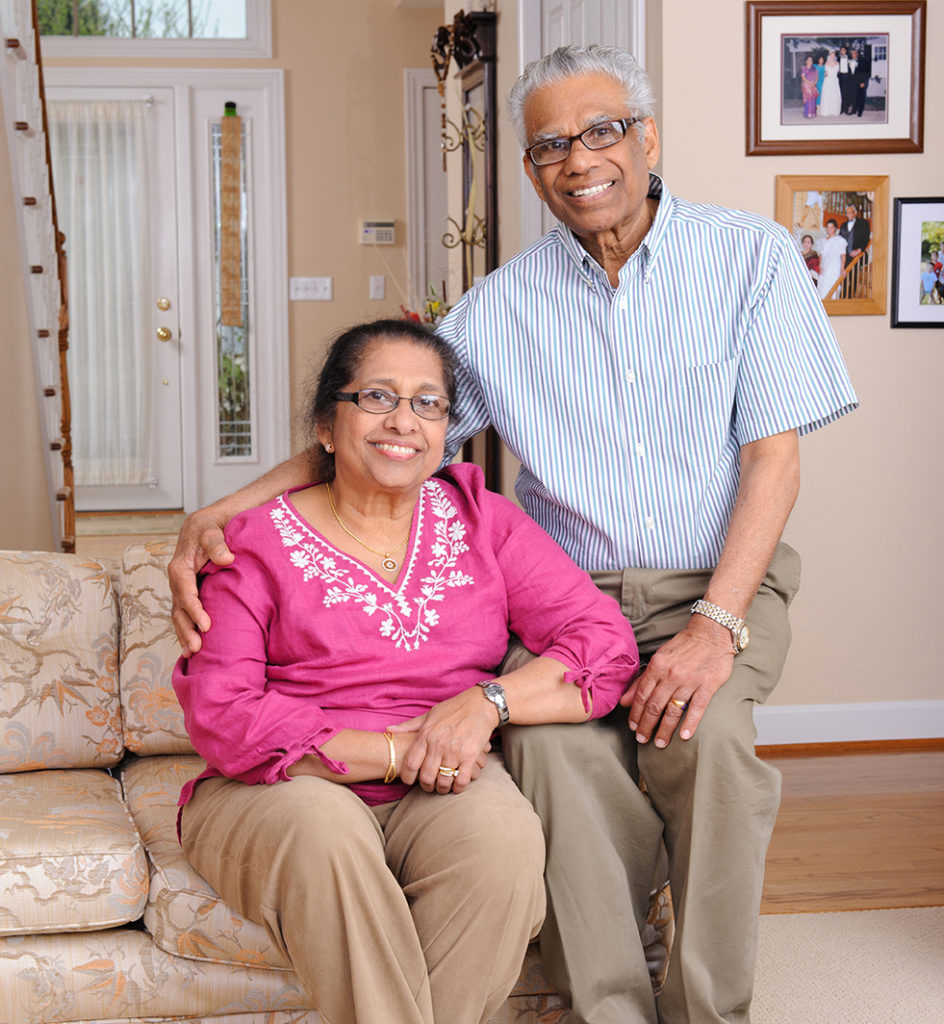
The adventure concluded in his wedding to Thresiamma, herself a recent graduate from medical school. Together, they returned to make a new home in Northwest Ohio.
Two careers, two children, and twelve grandchildren later, the Jacobs began to consider ways they could use their estate to help others. They wanted to provide for community needs here — and they had a deep, heartfelt commitment to something special in India.
“Years ago, we visited an institution near my hometown that served the mentally ill,” said Dr. Jacob. “We decided to construct a new rehab center there, which was completed in 2009.” Dr. Jacob, a psychiatrist, explained: “Their services are badly needed, because mental problems are still very taboo in India. They receive no government or church funds, so private donations are essential.”
When their attorney learned of their interest in continuing to provide for the mental health center, he advised the Jacobs each establish a Legacy Fund with the Toledo Community Foundation. A Legacy Fund is created while the donor is living, but has no assets until a “trigger event,” usually a death, occurs.
“Government restrictions make donating to overseas charities difficult,” Mr. Jacob observed. “The Foundation has the capacity to properly vet the recipients of our gifts, and to make sure all government requirements are met.”
The Jacobs also like that their Legacy Funds bring ongoing blessings to others in both countries. “Rather than making a one-time gift, a Foundation endowment will provide funds to the charities we choose for years to come,” said Mr. Jacob. “Working with the Toledo Community Foundation made that possible.”
In the Carson family, giving has been a foundation of happiness for generations.
So when sisters Betsy Carson Brady and Mary Carson Fedderke, unbeknownst to each other, established donor advised funds with the Toledo Community Foundation in the very same week, the coincidence somehow just seemed natural.
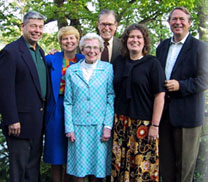
“It goes back to our parents,” the sisters observed. “All five of us kids saw how happy Mom and Dad were when they were involved — they had a lifestyle of giving. We realized early what joy it brought to have a positive impact.”
Among many other contributions to the community, Mary and Betsy’s father, Sam Carson, served on the initial Toledo Community Foundation board of trustees in 1973-78, and with his wife, Alice, established both the Carson Family Metroparks Fund and Carson Family Donor Advised Fund.
Nearly 20 years later, Betsy followed her father’s example, becoming president of the Foundation board. All the Carson children and their spouses enjoy identifying needs they can meet through the funds their parents created, and their own gifts. “We look for something that touches our heart,” said Mary. “Foundation staff can be instrumental in finding the people, projects and programs that are right for us.”
Now, to extend the tradition of giving to the next generation, establishing their own families’ donor advised funds was the natural path. “It’s too soon to know exactly what to support in the years ahead,” observed Betsy, “but we do know there are many community needs to be addressed. Our donor advised funds are a flexible way to make the decision to help others now, and define what that will become in the future.”
Berlin Family Invests in Philanthropy
For Dave and Jean Ann Berlin of Hudson, Michigan, making their community a better place was a little more difficult than they imagined.
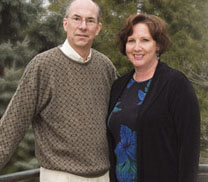
They wanted to help fund projects in their community and even quietly solicited for projects that might need some financial help. "But it was harder than we thought. This community pulls together and most of the projects we looked at were already completed. Others that we thought of were already financially taken care of," says Dave, president of Alumi-Span Inc. of Pittsfield, Michigan.
When Dave sold The Metalloy Corporation in 1989, the family decided some of the proceeds should be given to charity. "I soon realized I could not do this alone. I needed help."
That year the family established the Berlin Family Fund, a Donor Advised Fund, at the Toledo Community Foundation. The Fund's advisors include Dave and Jean Ann and their three children, Aaron, Amy and Chelsey.
"We had lots of offers for tax dodges after the sale but we wanted to invest in philanthropy. The Donor Advised Fund at the Foundation offers us the flexibility we were looking for with enough liberties to fund charities," says Dave.
The Berlins utilize the research services of the Foundation to make the most impact with their charitable giving. "It is not possible to know exactly what every charity needs. We trust the Foundation to help us with this," he adds.
Establish Your Fund
The Berlin Family ensured a permanent legacy of contribution to their community through a Donor Advised Fund at the Foundation. Learn more about the types of funds the Foundation offers for managing your philanthropic interests.
Types of FundsThe Foundation, based upon research conducted on nonprofit agencies, then makes suggestions for funding to the Berlins.
"Charities' needs change from year to year and we can't keep up with that. We trust and depend on the Foundation to do this for us. The staff prepares a list of charities that we might fund and then we talk about it and make our recommendations," he continues.
The Foundation also prepares reports on how the Berlin's funds have been used by charities. "This helps us to know that the gifts have been used to the best of our intentions.
"The investment performance of our fund has been pretty good. We've been able to maintain our initial investment and make a difference," he adds.
For Jean Ann, the reward has been being able to help people. The couple is not interested in having their name in lights for their efforts. "We can be anonymous in our giving because often we direct that the Foundation be listed as the donor," she says.
"Some people have big houses or big yachts. But how many of those things does anyone need? Those things are not important to us. Helping our community is," adds Jean Ann.
"For us the Foundation has done everything it said it would do. It has a sound reputation and we trust it. We couldn't be happier with what we have been able to do and hope to do for years to come," concludes Dave.
A Legacy of Giving
More than 30 years ago, By West was asked to become a member of the first Distribution Committee of the Greater Toledo Community Foundation which was formed to manage and oversee funds to be granted to the community.
Those were rocky days. The Greater Toledo Community Foundation had just been re-established after many years of dormancy. "Because the real operation of the Foundation was so young we struggled, and I thought we would not survive, but eventually we got organized and were able to get underway," says By.
Establish Your Fund
The Greater Toledo Community Foundation will help you create your own legacy for the community like By and Laura West. Please contact Bridget Brell Holt, philanthropic services officer, at 419.241.5049 or [email protected].
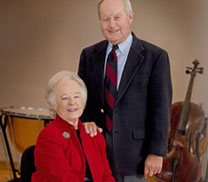
His years of serving as a volunteer with the Greater Toledo Community Foundation influenced him and his wife, Laura, to establish the Byron and Laura West Family Fund in 1999, a Legacy Society fund at the Foundation. In their wills, the Wests have made a commitment upon the death of the last surviving spouse to support various charities through the fund.
"We don't have the deepest pockets. But we have always been committed to the community's common good. The community has been very good to us," By notes.
He was born in Toledo, and Laura moved to the city at the age of five. However, it wasn't until they were students at the University of Michigan that they met.
"We reared our two children here and we were able to nurture our professional lives here. We have great friends in Toledo and are concerned about the community and its future," he adds.
"Providing for the future is one piece of retirement planning that needs to be in place. The Foundation is a source of comfort for us. It provides us with flexibility and helps us make good decisions," says Laura, a former clinical director of Harbor Behavioral Health Care, a mental health and United Way agency.
In addition to being members of the Legacy Society, the Wests established the West Donor Directed Fund to support the community through current gifts to various cultural, educational and environmental not for profit agencies.
They point out that the Foundation can guide them in making sound charitable gifts. "If we made specific early commitments to certain entities we might not be able to change our wishes if circumstances change. With the Foundation, which stays on top of institutions and their programs, we know good investments will be made," By adds.
By, who resigned as CEO of SSOE in 1989 and retired from West Carroll Architecture in 2002, recalls making appeals to his employees to support the United Way. "We had multiple cultures represented amongst our employees. Many had the perception that the government should take care of all the social needs. I would share with the employees that private agencies most often can do a better, more cost effective job helping people.
"I had a business associate from Hungary who was asked when he returned to his homeland what was one key difference between Americans and Hungarians. He said 'That's easy. Americans give away their money.' Most Americans do not understand how unusual this practice is," By adds.
Laura's parents were also very involved in the community. Her father was director of The Lucas County Family Court Center for almost 30 years and led the establishment of Linques, a community center for children. "My parents wanted to help make a difference and so do we. We're proud that our children feel the same way and support their interests with their own charitable gifts," she says.
Both By and Laura have served as volunteers and leaders of a number of not for profit organizations and through their activities have become aware of the community's needs.
As a trustee of the Toledo Orchestra Association Board (Toledo Symphony), By receives great enjoyment supporting his passion for music. "My mother was a concert pianist and I grew up with classical music. Perhaps the Symphony's biggest impact is that it functions as a brain gain for the community. I can almost guarantee that the IQs of those on stage are higher than most of us in the audience," he observes.
Although the Wests now live in Harbor Springs, Michigan, they frequently return to Toledo to enjoy the community that has helped transform their lives. "We care about the community. The Foundation has been blessed over the years with good leadership, so we know our legacy is in good hands," Laura concludes.
